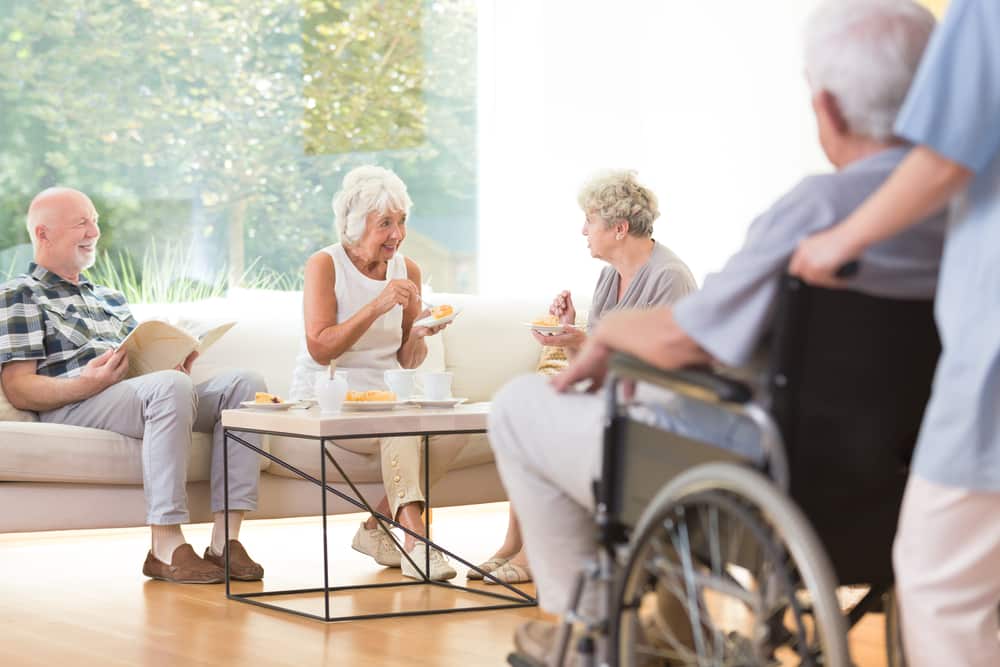Explore Charlotte Memory Care: Dedicated to Senior Health and Wellness
Explore Charlotte Memory Care: Dedicated to Senior Health and Wellness
Blog Article
Producing a Safe and Helpful Environment: In-Home Memory Treatment Fundamentals
Establishing a protected and nurturing atmosphere for people calling for in-home memory care is paramount to their health and lifestyle. From guaranteeing safety within the space to employing reliable interaction strategies and implementing memory-friendly layout aspects, there are important parts that add to a holistic treatment technique. By focusing on producing a supportive ecosystem that caters to the unique requirements of those with memory impairments, caretakers can considerably boost the everyday experiences of their enjoyed ones.

Safe Living Setting
Developing a hazard-free and safe living setting is critical when providing at home memory treatment for individuals with cognitive disabilities. Making sure the safety of the individual with memory loss is important to protect against crashes and advertise a sense of well-being.
In addition, utilizing technology such as activity sensing units and alarms can notify caregivers if the specific wanders or is in distress. By prioritizing safety actions and eliminating potential threats, caregivers can provide a safe and secure and helpful atmosphere for people with cognitive disabilities obtaining in-home memory treatment.
Effective Communication Techniques
Implementing customized communication approaches is vital in fostering significant interactions with individuals with cognitive disabilities in the context of in-home memory care. Efficient communication plays an important duty in creating an encouraging atmosphere that enhances the health and quality of life for people with memory problems. When connecting with somebody experiencing cognitive decline, it is very important to utilize clear and simple language, maintain a calm and favorable tone, and offer visual hints to aid comprehension.
One trick method is to exercise active listening, revealing compassion, patience, and respect throughout conversations. Non-verbal cues such as facial expressions and body movement can likewise help share understanding and assistance. Furthermore, utilizing memory treatment by making use of or reviewing past experiences music and art can touch into long-lasting memories, stimulating links and boosting interaction.
Moreover, incorporating routine regimens and constant interaction patterns can give a sense of familiarity and safety for people with memory problems. By applying these communication approaches, caregivers can develop purposeful connections and promote a sense of comfort and trust in the in-home memory care setting.
Memory-Friendly Layout
Provided the importance of creating a helpful environment for people with memory issues with effective communication strategies, the consolidation of memory-friendly layout elements in the living space ends up being vital in maximizing their everyday experiences and overall wellness. Memory-friendly style concentrates on enhancing safety, comfort, and self-reliance for people with cognitive impairments. Simple adjustments can make a significant difference, such as utilizing contrasting colors to enhance presence and lower confusion, incorporating clear signage to aid navigation, and minimizing mess to avoid sensory overload.
Incorporating acquainted components from the individual's past, such as personal look at these guys photos or favored things, can evoke positive memories and produce a sense of knowledge. By integrating these memory-friendly design elements, caregivers can offer a secure and encouraging living room that enables people with memory concerns to preserve their self-reliance and quality of life. Charlotte Memory Care.
Daily Regimen Preparation
When establishing a day-to-day routine for people with memory issues, careful planning is vital to support their cognitive function and overall health. Developing a structured schedule can aid decrease anxiety, disorientation, and complication commonly experienced by those with memory problems.
Adaptability is key, as some days may need adjustments based on the individual's mood and energy degrees. Regularly evaluating and adapting the everyday schedule will aid ensure its performance in promoting a comforting and positive setting for individuals with memory obstacles.
Assistance System Execution
Developing a durable network of encouraging individuals plays an essential role in boosting the quality of treatment and wellness for people requiring memory assistance. Relative, pals, healthcare specialists, and area sources can all add to producing a strong support group. Communication among these individuals is necessary to make certain that the demands of the individual with memory obstacles are met successfully.
Member of the family are typically the main caregivers and form the foundation of the assistance system. They give daily care, psychological assistance, and companionship. It is important for household members to look for assistance and respite when required to stop fatigue and ensure the very best feasible treatment for their loved one.
In enhancement to family members assistance, including health care professionals such as therapists, physicians, and nurses can supply specific care and guidance. These professionals can use valuable insights, clinical guidance, and help in managing the person's condition.

Final Thought
To conclude, creating a helpful and safe environment for individuals with memory care needs is vital for their wellness. By establishing a secure living setting, More about the author making use of efficient interaction methods, including memory-friendly design aspects, intending day-to-day routines, and implementing a solid support group, caregivers can assist boost the lifestyle for those with memory loss. These vital parts work with each other to develop a nurturing and empowering setting that advertises freedom and improves general quality of life.
Creating a hazard-free and safe living setting is critical when providing in-home memory care for people with cognitive problems. By focusing on safety and security measures and eliminating potential risks, caretakers can give a protected and supportive atmosphere for people with cognitive problems obtaining at home memory care.
Establishing a robust network of supportive look at this now individuals plays a pivotal role in improving the top quality of treatment and wellness for individuals requiring memory assistance - Charlotte Memory Care. Interaction amongst these individuals is essential to make certain that the requirements of the individual with memory difficulties are satisfied successfully

Report this page